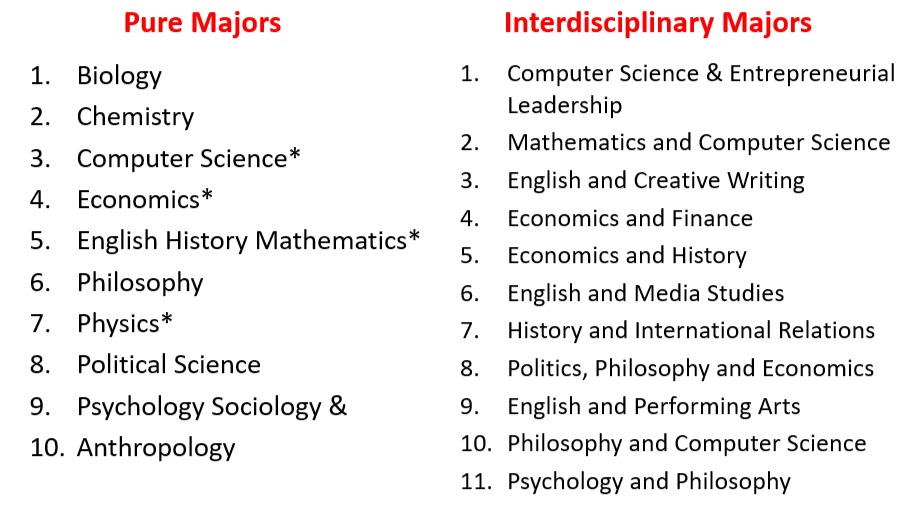Ashoka University’s Liberal Arts and Sciences education is designed to cultivate a range of crucial skills and attributes essential for success in today’s dynamic world. Here’s a breakdown of how their approach fosters these qualities:
In summary, Ashoka University’s Liberal Arts and Sciences education equips students with the intellectual agility, analytical acumen, and ethical grounding needed to navigate a rapidly changing world, contribute meaningfully to society, and effect positive change in their communities and beyond.
Bachelor’s degree, in Ashoka University is broadly divided into three categories:
Ashoka University requires students to take 9 Foundation Courses. All nine courses are mandatory. These courses are not formal gateways into the Major programmes
Foundation Courses
1.Mathematical Thinking
2.Principles of Science
3.Economics, Politics and Society
4.Mind and Behavior
5.Indian Civilizations
6.Great Books
7.Introduction to Critical
8.Thinking Environmental studies
9.Literature and the World
A Major is a subject in which a student will earn a Bachelor’s degree – either a B.A. (Hon.) or a B.Sc. (Hon.).
This can be achieved by taking either a Pure Major or an Interdisciplinary Major.
The Interdisciplinary Major goes beyond the traditional boundaries of disciplines and departments to allow students to combine multiple academic interests into a single degree program.
Ashoka encourages all its students to pursue their academic interests by way of a Minor. Opting to study courses in a subject outside their field of specialization qualifies for a Minor in that subject. They offer Minors in all the Major subjects as well.
NOTE
Students have to take 2 Co-Curricular Courses as part of their graduation requirements; in any semester, a student can take a maximum of 1 Co-Curricular Course.
Eligibility and What We Look For
To be eligible for the Young India Fellowship’s 2024-25 intake, applicants should have completed a recognised undergraduate degree or equivalent in any discipline as of July 2024.
Please Note: (1) Final year undergraduate students who will complete their degree or equivalent in the summer of 2024 are eligible to apply. Applicants may have work experience and/or a postgraduate credential. They may also be entrepreneurs, freelancers, in the middle of a gap year or preparing for competitive examinations, among others. (2) We welcome applicants of all age groups across diverse academic, geographical, professional and socioeconomic backgrounds.
Stage 1: Holistic Application & Assessment
Ashoka Aptitude Assessment (90 minutes) Mandatory
It consists of 40 questions (covering both Critical Thinking and Problem Solving)
Stage 2: Personal Interview
Selected students are shortlisted for the interview stage once the Admissions Committee conducts a holistic in-depth review and evaluation of each application form and assessment.
Stage 3: Decisions (Once in each Round)
NOTE
Applicants who submit their SAT/ACT scores in their Application Form are also mandatorily required to take the Ashoka Aptitude Assessment (AAA).


@Copyright 2023 Teachwell all rights reserved
WhatsApp us